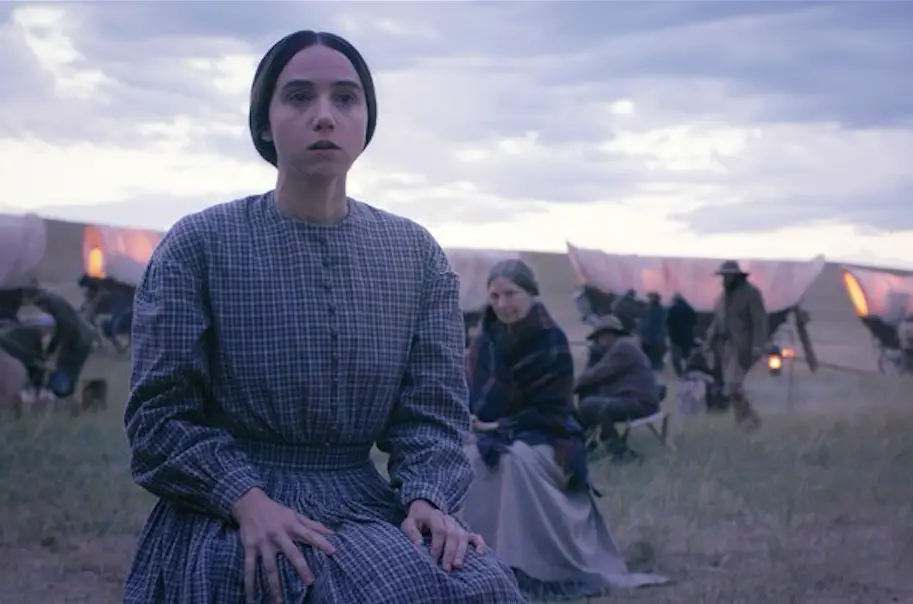Throughout their 34 years of filmmaking, the Coen Brothers have ventured into many a corner of the American experience. They’ve explored the slackers of nineties Los Angeles bowling; the mid-century Minnesotan Jewish family; the underbelly of Prohibition-era crime; the folk music scene in 1960s New York and nearly every other nook and cranny you could think of. They’ve covered huge swaths of territory and time, and their newest Western, “The Ballad of Buster Scruggs,” continues this impressive footprint.
The six-piece anthology is appropriately formatted, allowing it to accommodate so many iconic motifs of the American West. From the dry saloons of Prohibition to the prospectors of the late 19th-century gold rush, each vignette is weaved with one unifying thread: the promise of death, no matter the circumstance. Searching for anything beyond that is a futile exercise. All six pieces mostly differ in setting and tone, reflecting the sprawling storytelling power of the frontier. The only constant is that each character has a brush with death, whether as the casualty or the culprit; the suicide or the murderer; convicted by law or condemned by lawlessness.
The first vignette is the titular “The Ballad of Buster Scruggs,” about a crooning gunslinger whose time as head honcho ends unexpectedly. The second is “Near Algodones,” wherein James Franco’s character of a bank robber narrowly evades lynching only to get caught again. “Meal Ticket,” starring Liam Neeson, is about an impresario and his young talent, a limbless actor who is increasingly burdensome. “All Gold Canyon,” in which a prospector is cheated after striking gold; “The Gal Who Got Rattled” with Zoe Kazan playing a young, West-bound woman who’s given risky instructions and, finally, “The Mortal Remains,” which follows an eclectic group who argue about human nature as they travel westward by stagecoach.

In the opening sequence, Buster Scruggs rides on horseback through a valley in the American West, a gorgeous picture of red ochre mountains and dusty blue skies. He strums his guitar, grinning as he croons a twangy ballad, the echo of his voice a testament to the valley’s miles-long isolation. Scruggs is a fast-talking, bright-eyed killer – the kind that’s been assigned a whole assortment of nicknames thanks to a reputation that precedes him.
After an altercation at a saloon, Scruggs murders a fellow bar-goer, then immediately engages the rest of the patrons in a raucous singalong mocking the person he just killed — yeehaw! Every bullet he shoots is like one of his tunes — a cheerful testament to his cynicism — until he’s shot dead, permanently rendered speechless by a harmonica-wielding young-blood dressed in all black.
“Can’t be top dog forever,” Scruggs resigns before his eyes roll back, the neat little bullet hole in his off-white hat splashed with bright red. It’s the perfect ending to the film’s beginning, cautioning the audience that death doesn’t discriminate. Scruggs hopes for better in heaven — “where men ain’t low-down and poker’s played fair” — but he himself is the lowest of the low, being a murderer, and he, too, tries to weasel his way out of a bad hand of cards at one point. Just as Scruggs has the same character as the people he despises, he’s also just as mortal as they are.
Each story has something entirely new to offer on the subject of death, sometimes with faint overlap. In the “The Ballad of Buster Scruggs” and “All Gold Canyon,” the protagonists are shot by younger foes, and the gold prospector, like Scruggs, is a disruptor. Animals and insects recede from the meadow as he makes his way through, digging trenches in search of gold, oblivious that his search will culminate in death and violence. Peace is restored to the grassy meadow in the last shot, the scene returning to its natural order as the threat of human presence has disappeared. Can humanity only offer the guarantee of destruction and death, all for a little bit of gold?
There is more to be said on the subject of greed and death in “Meal Ticket,” which is perhaps the most resonant vignette of “The Ballad of Buster Scruggs.” The Scrooge-resembling impresario travels from town to town in a wagon that doubles as a stage, from which his partner — called the “Wingless Thrush” due to his lack of arms or legs — monologues from each night. The performances are larger than life: Percy Shelley’s “Ozymandias” poem, Lincoln’s Gettysburg address and the Biblical story of Abel and Cain. All are tragic, and all foreshadow men outrun by terrible fates.
Applause and money are increasingly sparse for the duo as fewer people sit to watch the actor perform. The impresario drinks their earnings away or spends them on escorts. One night, he pauses just a second too long before sharing food with his partner. He then throws down half their savings on a chicken whose apparent mathematical genius draws large crowds. Keeping the ending to myself, I’ll say that there’s something vaguely nightmarish about this piece, as it implies that people’s lives are perhaps not in their own hands at all.
“Near Algodones” has a similar message, though it falls more on the lighthearted side of the Coen spectrum, layered with equal parts suspense and clever one-liners. Overall, it’s the film’s weakest link. It dwells compellingly on the idea of final words, which are so often sanctified yet rarely live up to expectations. “Now this here is your opportunity to speak your peace before your sentence is carried out,” one of the lawmen says to the robber after he’s caught for the first time and sentenced to hanging. “That son of a bitch back at the bank don’t hardly fight fair, in my opinion,” the robber replies indignantly, before a group of Native Americans suddenly attack the law enforcement and nearly kill him.
The second time he’s caught, his sentence is far more public. A large crowd comes to watch him and several other people up on the platform. He coolly looks out at the audience and is struck by a woman near the front who stares at him, wide-eyed. “There’s a pretty girl,” he breathes, a peaceful smile lingering on his face. Then it all goes black. With death so unpredictable, it’s a wonder that last words are romanticized at all. No one can ever really know what they’ll be.
Experience six stories of the Wild West that only Joel Coen and Ethan Coen could tell. #TheBalladOfBusterScruggs is now playing in select theaters and on @Netflix. pic.twitter.com/7LnAtwsbuv
— The Ballad of Buster Scruggs (@balladofbuster) November 16, 2018
The spiritual centerpiece of “The Ballad of Buster Scruggs” is its penultimate tale: “The Gal Who Got Rattled,” which is longer and consequently more fully formed than the other vignettes. Kazan’s Alice is on a wagon train journey to Oregon, where she grows close to the train’s leader, Billy Knapp, who eventually proposes marriage. When Alice is sidetracked from the group one day, Billy’s partner Mr. Arthur sets off to find her, which he does — but it’s not before long that their predicament takes a turn for the worse. A group of Native Americans charge toward them, and Mr. Arthur gives Alice highly precarious instructions in the event that he is unable to ward them off.
With “The Gal Who Got Rattled” and “Near Algodones” in mind, the most pressing issue I have with “The Ballad of Buster Scruggs” is that it sustains a tired weakness of the genre: treating Native Americans only as savage adversaries of the civilized white settler. Recent westerns such as “Meek’s Cutoff” have been successful in retaining the “cowboy vs. Indian” trope without the unnecessary dehumanization of the latter, so there is a clear precedent for a film like “Buster Scruggs” to follow in its lead.
In a genre where Natives are relegated to the role of the antagonist time after time, I was disappointed to see such an intelligent team of creatives fall short. A little subversion can go a long way.
A partial recovery from this stumble is the film’s final chapter, “Mortal Remains.” It’s a satisfying, dialogue-driven piece in which five travelers bicker over philosophical questions, namely whether there are two kinds of people in this world and what those two might be. One traveler suggests that all people have essentially the same wants and needs; one suggests that people are either upright or sinning; one suggests that no two people are alike.
Even with this broad range of answers, the notion of duality in human beings corresponds with the theme that “The Ballad of Buster Scruggs” has been grappling with. If there are two kinds of people in this world, where might either kind go when they die? It’s an apt question to close the film with, and the last shot of “Mortal Remains” parallels the first vignette, in which Buster Scruggs ascends to the heavens, hoping that people are just a little bit better up there.
Ultimately, “The Ballad of Buster Scruggs” strikes gold in its exploration of the American Frontier, even if it hits a few roadblocks on the way. The film wrestles thoughtfully with the undeniable presence of death in the Western genre, illustrating it in whatever form it might take and at whatever time it might come. After all, only two things in life are absolutely certain: death and a damn good movie from the Coen Brothers.

















